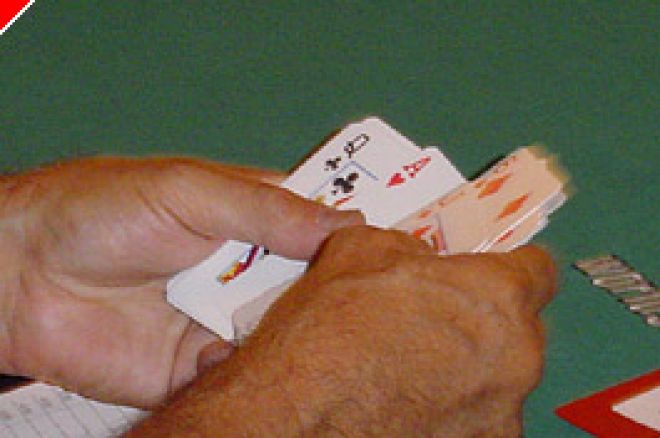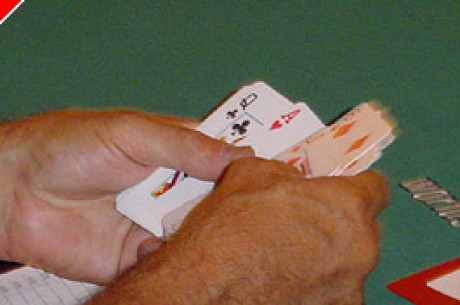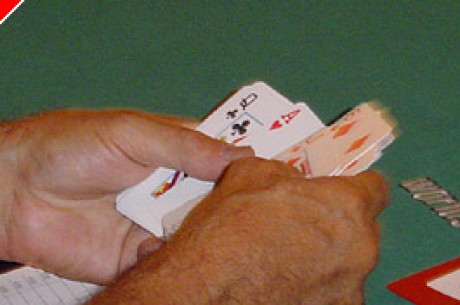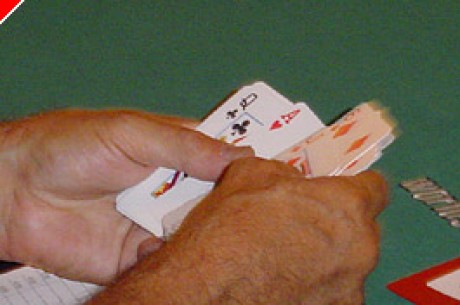Stud Poker Strategy - Having a Poker Face

Ask the average Joe what the most important thing is to being a good poker player and he'll often answer, "Uh, I don't know. Maybe having a good poker face." At least that's been my experience. The public at large seems to put a lot of stock in this. But what does it really mean?
Traditionally, having a poker face has meant having a face that doesn't betray the strength or weakness of one's poker hand. "Poker face" is often synonymous with inscrutable.
This is the face we are all encouraged to maintain, to keep from giving off those unconscious clues to our hand known as tells. If we look happy when we have a good hand others will know that we are strong and avoid us by folding when we bet. And, similarly, if we look upset when we have a bad hand there's no way we'll be able to properly execute a bluff.
But at the risk of offending the poker purists out there I'd like to update the definition of a "poker face" Before I do so, however, I'd like to go to the root of what we as poker players should be using our faces, chiefly, to do.
We who take poker seriously believe that our primary mission in a poker game is to make money. True, having fun and socializing may be part of playing poker for us, but fundamentally, poker is about winning. And winning in poker means winning money.
How do we best do this? From my experience, there are chiefly two ingredients. The first, of course, is to develop our skill – to learn the relative value of starting hands, to understand in 7-Card Stud how exposed cards change these values – and to understand how our hand's winning probability of winning changes as the hand progresses from Third Street to the River. Similarly, we need to understand how best to exploit our hand's weakness or strength with appropriate betting, raising and folding. And, as we increase our skill, we must also learn how to exploit the weaknesses and strengths of our opponents – to make the most of the hands we have while minimizing our losses when we are weak.
But our skill is just one ingredient necessary for consistent winning. The other ingredient, and often the easier ingredient to acquire, is to take our skill and to pit it against less skillful players. Simply put, it's not enough to be good. We must find bad opponents who will play against us.
Though there are thousands of articles and hundreds of books on the former – and that's just for Stud, there are painfully few articles or books on the latter. But finding bad opponents is often every bit as important as improving one's poker skills. And, I suggest, it often comes back to having a poker face – as I define it.
You see, for me, the best poker face isn't that expressionless, stern or serious mask, worn to prevent opponents from gaining any insight into my hand. The bad players I want to play against don't understand their own cards – they surely can't figure me out. No, for me, the ideal face for playing poker is the face that invites the poor player to sit down next to me – that encourages the newbie, the neophyte, the unaware, the eager and the otherwise awful player to join me for a game. .
Say what you want about looking intimidating, serious and inscrutable. I want to look friendly, sweet, innocent and inviting. My poker face is a smile.
Ed note: Smile all day while cleaning up at the tables of Mansion Poker








